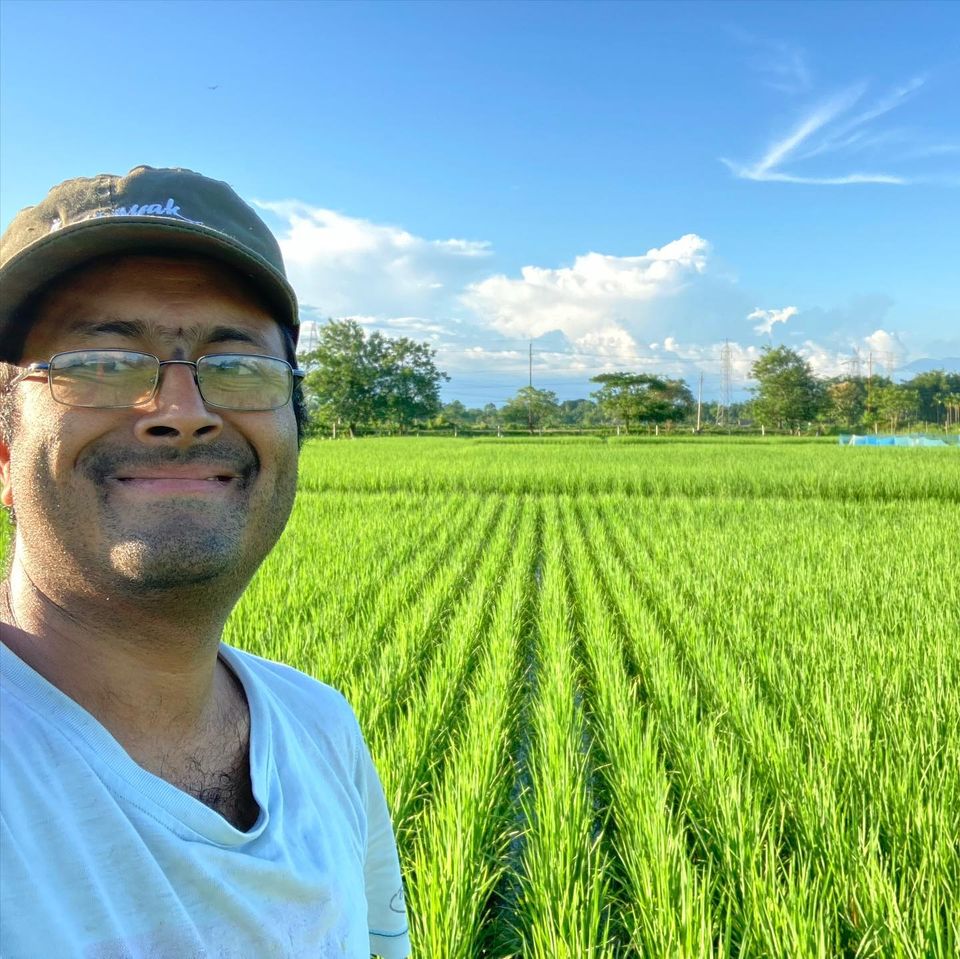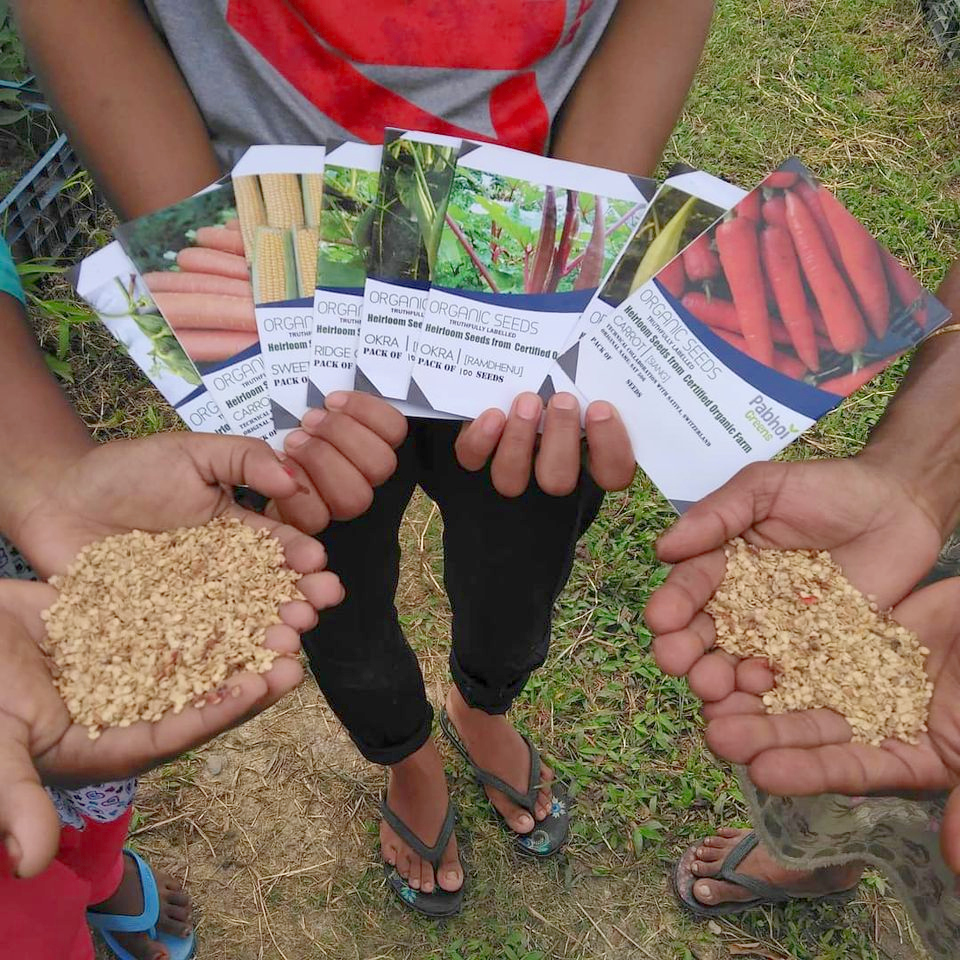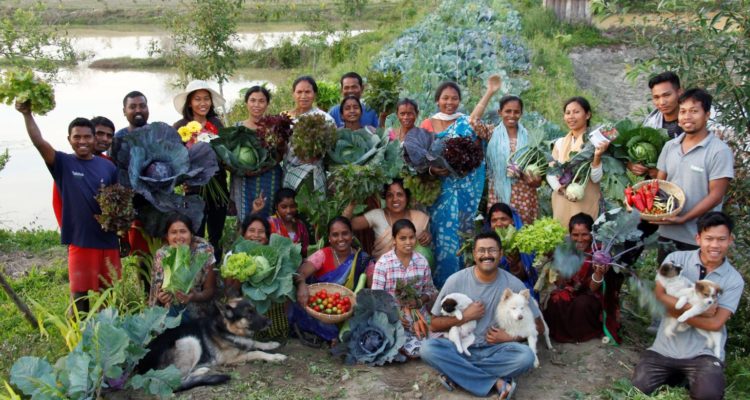Through the crowdfunding campaign, the farmer has, so far, attracted funds of Rs 31.8 lac of the total Rs 40.4 lac pledged.
◊ By Rutaksha Rawat
Note: To find organic ingredient suppliers, organic shops and organic farms in India, buy the Organic Directory
“Foreign multinationals have created an ecology of dependencies, with farmers going into debt annually by repeatedly buying non-reproducible hybrid seeds, chemical fertilisers and pesticides.We want to change that,” says Neelam Dutta, organic farmer and founder of the organic certified farm, Pabhoi Greens, who has recently become the beneficiary of a European crowdfunding campaign amounting to Rs 31.8 lac as of August 31, 2020 (total amount pledged is Rs 40.4 lac).
The funds have been contributed by 206 backers, who support the project and wish to see it reach fruition.

Neelam Dutta, founder of the certified organic farm, Pabhoi Greens, is a 2nd generation farmer from Assam.
The organic seeds initiative by Dutta produces diverse, reproducible plant varieties. It aspires to offer local farmers an alternative to seeds provided by multinationals, which need to be bought repeatedly every season and push farmers into a cycle of debt.
The 45-day crowdfunding campaign called ‘Organic Seeds from Pabhoi’ kickstarted on July 23, 2020, on the Swiss platform www.wemakeit.com, and as of August 31, still has 6 days to go.
The crowdfunding has been initiated jointly by Dutta himself, the Swiss organic seed company, Sativa Rheinau AG, and WFSCAN (World Food System Center Alumni Network). Dutta had become acquainted with the other parties on his prior travels to Switzerland, to receive training on organic seed production.
WFSCAN was founded in 2018 by alumni of the ETH Zurich World Food System Summer School. The former aims to connect, learn, and contribute through the active network that collaborates and drives changes towards sustainable food systems.
At its Rheinau site, Sativa Rheinau AG is breeding new, organic vegetable varieties. The range is characterised by a diverse range of crops—both old, rare varieties and new, organic varieties.

Dutta’s Seed Project produces diverse, reproducible plant varieties and offers local farmers a sustainable alternative to seeds sold by multinationals, which push the former into a cycle of debt.
Dutta, a 2nd generation farmer with a passion for nature and wildlife, converted his farm to organic 20 years ago. Pabhoi Greens, which is located in Biswanath in Assam, engages in intercropping, fish farming, vermicomposting, beekeeping and cultivation of organic vegetables.
With 35 full time workers from 9 different ethnic groups, the farm also welcomes 4,000 farmers, students and women groups for training each year.
“By tradition, families had their own seed storages and did their own seed propagation. But empty promises from the green revolution and initially subsidised seeds from chemical companies have altered everything,” says Dutta.
“Our goal is to create a seed initiative for northeast India, which is able to supply farmers with locally adapted seeds, taking the traditional knowledge, using modern best practices of organic farming and combining them with training on seed production,” he shares.
The seed project commenced in 2015 with a small production of heirloom indigenous seeds. The process entails: collection of seeds, growing them, and seeing them through the selection process. The goal is to preserve seeds and also to grow certain seeds, which every farmer can keep. Dutta has also set up a company for seed breeding.
Pabhoi Greens has conducted trials of over 250 different heirloom and reproducible varieties, as well as, completed four seasons of small-scale seed production and experimental marketing.
The results have been promising.
SEED PROJECT DETAILS:
CURRENT COST OF THE SEED PROJECT
- Seed project wages (10 semi-skilled workers per year): Rs 780,000
- Travelling to testing sites in Arunachal Pradesh and Nagaland: Rs 118,000
FUNDING RECEIVED WILL GO INTO THE FOLLOWING
- Hiring of project assistant
- Greenhouse
- Power backup
- Dehumidifier
- Wind sifter
- Cold storage
- Training in villages



Very good initiative.
Excellent